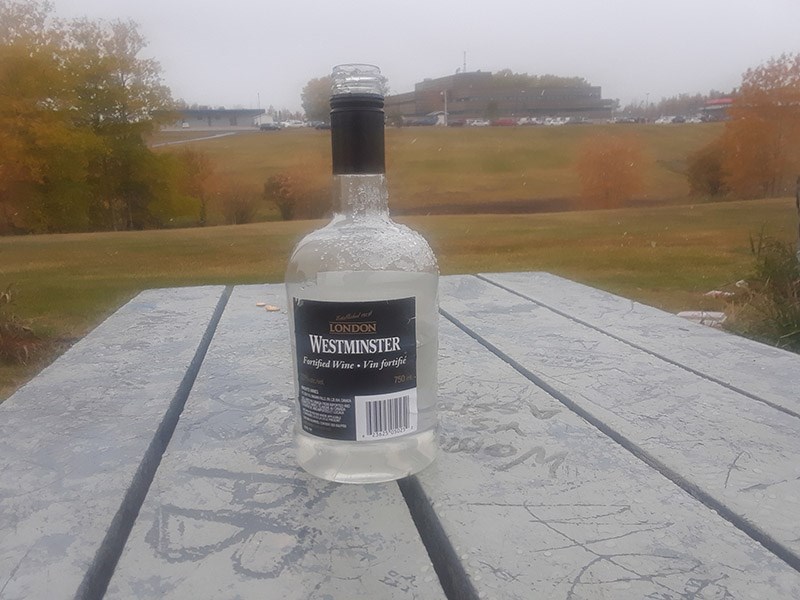Manitoba Liquor & Lotteries (MBLL) says it has sold about 60,000 to 70,000 bottles of sherry each year for the past three years at its Thompson Liquor Mart – 5,000 to almost 6,000 bottles monthly or 164 to 190 per day.
But not selling low-priced products wouldn’t solve the problem of alcohol abuse, they say.
The sales figures for the sherry category of products aren’t limited exclusively to London Westminster Canadian Apera but it does likely make up the vast majority of them, given that, as of 3 p.m. Jan. 15, there were 1,500 bottles of it on the stores shelves compared to under 15 bottles for each of the other kinds of sherry available here.
“If removing economy sherry products from the shelves was the solution we would do it,” said Andrea Kowal, MBLL director of communications and corporate affairs, Lotteries, but it isn't that simple. “The customers who usually buy this product will simply buy a different product, or got to another store, or to a beer vendor, or bar. In worst cases they will consume non-potable products such as hairspray or mouthwash or hand sanitizer with potentially far more harmful health effects.”
MBLL does have a policy of social reference pricing, instituted in April 2017, under which inexpensive liquor products that are typically consumed by high-risk drinkers have their prices increased every three months.
“When implemented properly and at the right pace, it is a proven and effective way to reduce alcohol-related harms,” said Kowal. “Social reference pricing is a common policy among Canadian liquor jurisdictions and is considered an industry best practice by the Canadian Centre on Substance Abuse.”
The Crown corporation also provides more than $4 million in funding for treatment and outreach programs in Manitoba, Kowal says, about 10 per cent of which is spent in Thompson in the form of $370,000 a year for the Addictions Foundation of Manitoba’s Eaglewood treatment facility and $30,000 this year for Thompson’s community safety officers, who, among other things, provide assistance to intoxicated people by ensuring they have a safe place to stay and putting them in touch with people or programs that can help them. Another $2,000 goes to the sherry bottle recovery program in Thompson, which aims to keep empty sherry bottles off the streets.
MBLL has also been in talks with the Main Street Project in Winnipeg about a managed alcohol program, intended to reduce harm for chronic alcoholics by providing them with alcohol at regular intervals and under controlled conditions in order to reduce the harm that their alcoholism causes.
“If such a program were to get off the ground it would be eligible for Liquor & Lotteries funding,” Kowal said.
Thompson Liquor Mart employees refused service to intoxicated people 5,281 times in 2018, about 14 a day, and about 1,900 times to minors attempting to buy alcohol.
“This high number of refusals due to intoxication at the Thompson Liquor Mart shows just how dedicated our employees are to selling our products responsibly,” said Kowal.
The Canadian Centre on Substance Abuse said in a 2006 report that, in 2002, alcohol abuse resulted in $7.1 billion worth of lost productivity owing to illness and premature death, $3.3 billion in direct health care costs and $3.1 billion for enforcement costs.
Because of the potential that alcohol has to inflict harm, MBLL says it is mindful of its responsibility to keep social impacts to a minimum.
“Liquor & Lotteries recognizes the seriousness of alcohol-related issues facing the city of Thompson,” said Kowal. “This is why we work hard to address the concerns that have been raised by the mayor’s office, city officials and local citizens. Our social responsibility funding is dedicated to programs that mitigate alcohol-related harms or work with those in need of addictions-related treatment and support.”




